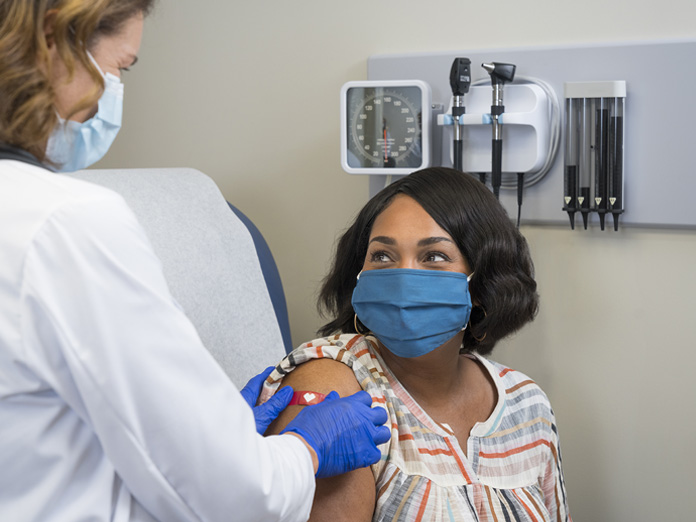Preventive care coverage includes regular check-ups, screenings, and vaccinations to detect and prevent potential health problems before they become more serious or costly to treat. Preventive care coverage is an essential aspect of healthcare that focuses on maintaining and improving health through early detection and prevention of potential health problems.
It includes regular check-ups, screenings, immunizations, and other services aimed at identifying and addressing health concerns before they become more serious or expensive to treat. By providing coverage for preventive care, insurers help individuals stay healthy and avoid costly medical interventions in the long term.
This comprehensive coverage not only benefits individuals but also contributes to overall public health by reducing the burden of preventable diseases and promoting wellness. Understanding the importance of preventive care coverage can empower individuals to take proactive steps towards maintaining their health and well-being.

Credit: www.aetna.com
The Importance Of Preventive Care Coverage
Preventive care coverage is vitally important for maintaining good health. By regularly undergoing preventive care measures, individuals can detect potential health issues early on and prevent them from worsening. Preventive care encompasses a wide range of practices, such as routine check-ups, screenings, immunizations, and vaccinations.
These measures can aid in the early detection of diseases and conditions, enabling prompt intervention and treatment. Additionally, preventive care helps individuals maintain healthy lifestyles and adopt positive habits. By focusing on preventative health measures, individuals can reduce the need for extensive medical interventions in the future.
The benefits of preventive care coverage are numerous, including improved overall health, increased lifespan, and reduced healthcare costs. Therefore, it is essential to prioritize preventive care and ensure comprehensive coverage for these vital health measures.
Understanding Preventive Care Coverage
Preventive care coverage is a vital aspect of healthcare that focuses on detecting and preventing potential health issues before they become more serious and costly. It encompasses various services, such as vaccinations, screenings, and annual check-ups, aimed at identifying health concerns early on.
Understanding the definition and scope of preventive care coverage is crucial for individuals to make informed decisions about their healthcare. This coverage ensures that necessary preventive services are covered by insurance plans, thereby promoting proactive health management. By implementing preventive care coverage, individuals can address potential health risks promptly and take appropriate measures to maintain their well-being.
In this way, preventive care coverage works as an essential tool in preventing diseases, reducing healthcare costs, and improving overall health outcomes. Embracing this coverage allows individuals to prioritize their health and well-being, leading to a healthier and more fulfilling life.
Key Elements Of Preventive Care Coverage
Preventive care coverage encompasses key elements that ensure the well-being of individuals. It includes various types of health services that are covered to prevent diseases and promote overall health. These services range from vaccinations and immunizations to preventive screenings and exams.
Additionally, counseling and education services are provided to raise awareness and provide guidance on healthy behaviors. Preventive medications are also covered to manage chronic conditions and prevent complications. To be eligible for coverage, certain requirements and guidelines based on age and gender may apply.
The frequency and timing of services may vary, ensuring individuals receive the necessary care at the right intervals. In-network providers play a crucial role in providing accessible and affordable preventive care services. By understanding and utilizing preventive care coverage, individuals can take proactive steps to maintain their health and prevent the development of serious health issues.
Health Insurance Plans And Preventive Care Coverage
Health insurance plans offer coverage for preventive care, ensuring individuals have access to essential services. There are different types of plans available, including employer-sponsored health insurance, individual plans, and government programs like medicare and medicaid. When selecting a plan, key factors to consider are network coverage for preventive services and cost-sharing arrangements, such as deductibles.
It’s important to understand what preventive services are covered and if there are any additional services included. By choosing the right plan, individuals can take proactive steps towards maintaining their health and well-being. With employer-sponsored plans, individuals can benefit from coverage through their employer, while individual plans offer more flexibility.
Medicare and medicaid provide options for specific populations, ensuring preventive care is accessible to all. Make an informed decision and prioritize preventive care coverage for a healthier future.
Maximizing The Benefits Of Preventive Care Coverage
Preventive care coverage is essential for maximizing the benefits you receive from your healthcare plan. Understanding the preventive care benefits available to you is key. By utilizing preventive health services regularly, you can proactively maintain your well-being. It’s important to educate yourself on the preventive care guidelines set by your insurance provider.
Regular check-ups, vaccinations, and screenings are all part of preventive care. By taking advantage of these services, you can detect potential health issues early on and reduce the risk of developing chronic conditions. Preventive care coverage is designed to keep you in good health and prevent expensive medical interventions in the future.
So, make sure to stay informed and use your benefits wisely to prioritize your overall wellness.
Overcoming Barriers To Preventive Care
Preventive care coverage is essential for overcoming barriers to accessing preventive care. One major barrier is the cost aspect, as individuals may face affordability issues that prevent them from seeking the necessary care. Lack of awareness and health literacy also pose significant challenges, as individuals may not fully understand the importance of preventive care or how to access it.
Furthermore, disparities in access to preventive care must be addressed to ensure equitable healthcare for all. By tackling these barriers, individuals can receive the preventive care they need to maintain good health and prevent serious medical conditions from developing. It is crucial to prioritize preventive care coverage to promote overall well-being and reduce the burden on the healthcare system.
The Future Of Preventive Care Coverage
The future of preventive care coverage is intertwined with the changing healthcare landscape and policy trends. As advancements in preventive care technologies continue to emerge, there is a shift towards a more proactive approach to healthcare. The focus is on preventing illnesses and promoting overall wellness rather than just treating diseases.
This paradigm shift is driven by the recognition that preventive care is not only more cost-effective in the long run but also leads to better health outcomes for individuals and communities. Policies are being implemented to ensure that preventive care is accessible and affordable for everyone.
This includes coverage for screenings, vaccinations, and routine check-ups. By prioritizing preventive care coverage, we can potentially reduce healthcare costs and improve the overall health and well-being of individuals and society as a whole.
Conclusion
It’s clear that preventive care coverage plays a crucial role in maintaining our overall health. By proactively seeking preventive care, we can detect and address potential health issues before they become more serious and costly to treat. With the right coverage, individuals can gain access to a range of preventive services such as vaccinations, screenings, and regular check-ups.
This not only helps us stay healthy but also reduces the burden on our healthcare system. In order to make the most of preventive care coverage, it’s important to understand the details of your insurance plan and take advantage of the services it offers.
Regular communication with your healthcare provider can ensure that you receive the appropriate preventive care based on your age, gender, and overall health status. By prioritizing prevention, we can lead healthier lives and enjoy the benefits of early intervention and timely treatment.
Remember, prevention is always better than cure, and having the right coverage ensures that we can take proactive steps towards our well-being. So, don’t underestimate the power of preventive care coverage – it’s an investment in your health for a brighter future.






